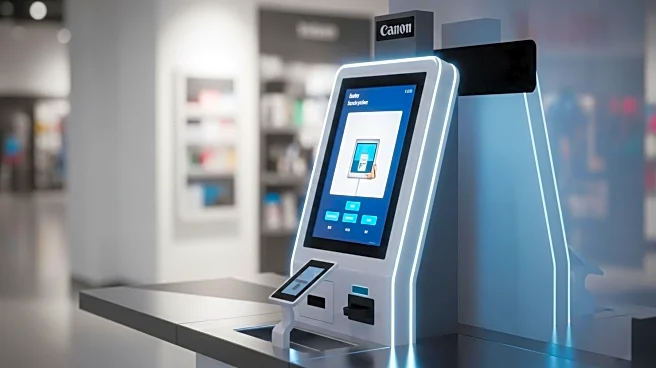What is the story about?
What's Happening?
The retail industry is increasingly focusing on the checkout process as a critical component of the consumer journey. A new report from RetailX highlights the emergence of checkout-as-a-service (CaaS) as a significant opportunity for retailers and brands. This approach replaces traditional checkout systems with a comprehensive solution that enhances customer trust and loyalty. The report provides insights into how leading companies are optimizing their checkout experiences to drive growth. Key strategies include dynamic in-checkout personalization, real-time customer support, and pricing transparency. These measures aim to meet rising consumer expectations and improve conversion rates.
Why It's Important?
The shift towards checkout-as-a-service reflects broader trends in the retail industry, where customer experience is paramount. By adopting CaaS, retailers can offer personalized recommendations and post-purchase support, which are increasingly demanded by consumers. This approach not only enhances customer satisfaction but also builds long-term relationships through first-party data acquisition. As trust issues remain a concern for consumers, providing familiar payment options and transparent pricing can reassure customers and reduce cart abandonment rates. The adoption of CaaS could lead to increased sales and customer loyalty, benefiting retailers in a competitive market.
What's Next?
Retailers are expected to continue refining their checkout processes to align with consumer expectations. The integration of CaaS solutions may lead to further innovations in personalization and customer support. As the industry evolves, businesses will likely explore new technologies and partnerships to enhance their checkout experiences. The focus on first-party data acquisition will also drive changes in how retailers interact with customers, potentially leading to more targeted marketing strategies. Stakeholders, including technology providers and retail brands, will play a crucial role in shaping the future of checkout experiences.
Beyond the Headlines
The adoption of checkout-as-a-service could have ethical implications, particularly concerning data privacy and security. As retailers collect more first-party data, they must ensure compliance with regulations such as the EU General Data Protection Regulation (GDPR). Additionally, the shift towards personalized checkout experiences may raise questions about consumer autonomy and the influence of targeted recommendations. Retailers will need to balance personalization with ethical considerations to maintain consumer trust.
















